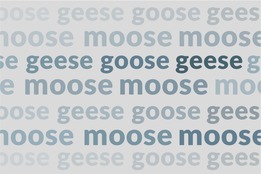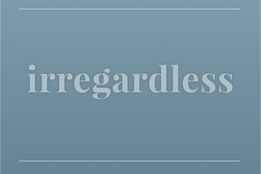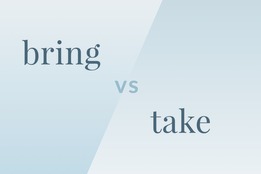/ / Uncategorized
What’s the Difference Between Lifes and Lives?
Contents
- 1 What’s the Difference Between Lifes and Lives?
- 2 Using Lifes in a Sentence
- 3 Using Lives in a Sentence
- 4 Remembering Lifes vs. Lives
- 5 Outside Examples
- 6 Quiz: Lives vs. Lifes
- 7 Article Summary
Lifes and lives seem like they could be two alternate spellings of the same word. However, lifes is actually not a word at all. It is just a common misspelling of the word lives.
Lifes is a common incorrect way to spell lives. Those who use it intended to use the plural of life and forgot to change the f to a v when adding an s.
- Some people believe that cats have nine lifes. (incorrect spelling – use lives instead)
Lives can act as either a noun or a verb. It relates to existing, and not being dead.
- The firefighters couldn’t risk their lives to go back into the burning house to rescue the pets. (noun form)
- She lives in Germany. (verb form)
Let’s look at some of the ways to use, and not use, these words in English.
Using Lifes in a Sentence
When to use lifes: Never use the word lifes. If you want to use the plural form of life, you must change the f into a v.
This is a spelling rule that you can see in other singular/plural word pairs such as wolf/wolves, calf/calves, hoof/hooves, knife/knives, leaf/lives, and others.
Life is a noun that refers to the animate existence of animals and plants.
For example,
- Dozens of lifes were lost in the school shooting. (incorrect spelling – use lives instead)
- Some people believe each person has only one life to live. I disagree. I believe we all have many lifes to live. (incorrect spelling – use lives instead)
Most singular words change into plural words simply by adding s. Life and the other words ending in f and fe can be tricky to remember because they are an exception to this rule. Adding s is not enough for this word. Therefore, the word lifes is never correct and you must always avoid using it.
Using Lives in a Sentence
When to use lives: Lives can be either the plural noun form of life or the third-person singular conjugation of the verb live. In both cases it refers to animate existence.
For example:
- Teenagers always drive so recklessly! It’s like they don’t even value their lives! (plural noun form)
- She always is sky diving and doing other wild stuff. She lives an exciting life. (verb form)
There are also some common expressions and idioms with lives or live:
- to live on the edge: to lead a perilous lifestyle
- He hiked Mount Everest all by himself. He really lives on the edge.
- to live a lie: to live while hiding a big secret about one’s true self
- He’s gay but can’t tell anyone because it is illegal in his country. He lives a lie every day.
- to live off the land: to get one’s needs from the land directly rather than through buying them
- She grows all of her own food and even makes her own clothes from her livestock. She lives off the land and hardly ever buys anything.
There are many more expressions that use live or life without an s. However, the expressions above are among the more common ones that use the plural noun or third-person singular conjugation.
Remembering Lifes vs. Lives
It is hard for people to remember to change the f to a v when making life plural. This is because not all words ending in f or fe change to v when plural. A couple examples of words that don’t change are giraffe/giraffes and chief/chiefs.
There is one mnemonic device that can help you to remember that life is one of the words that does change its final consonant when it becomes plural. Look at the f in life. It looks almost like a crude stick figure of a single person.
This can help you remember that a single life is spelled with an f. Likewise, look at the v in lives. The two lines in the v look like an even cruder drawing of two people. This can help you remember that two people means two lives, and therefore you should spell live with a v.
Outside Examples
- “I think it’s important for law enforcement to understand these kids and what their lives are like, and for kids to see law enforcement as people who are on their side to keep them safe. Our goal is that we can build that bridge,” she said. –Chicago Sun Times
- “Since the hours after Deborah Danner’s killing Ed Mullins has been proclaiming Sgt. Hugh Barry’s innocence,” Hawk Newsome, president of Black Lives Matter Greater New York, said in a statement. “He has insulted the mayor and publicly degraded the police commissioner.” –New York Daily News
- A Utah mother of three — killed, allegedly by her husband, aboard a cruise ship off Alaska — was “the light of our lives,” her grieving family said. –New York Post
- Returning to the Senate after surgery and a brain cancer diagnosis, he delivered a stirring speech on Tuesday calling on lawmakers from both parties to reach “agreements made in good faith that help improve lives and protect the American people.” –New York Times
Quiz: Lives vs. Lifes
Select the correct word to fill in the blanks, either lives or lifes.
- She _________________ off campus.
- People think fish can’t feel pain, but they actually can. I think their ______________ are equally important to other animals’ ______________. (correct spelling)
- I don’t care about the _______ of other people. My life is the only one that is important! (incorrect spelling)
See answers below.
Article Summary
Should I use lifes or lives? Only use lives. There is no situation in which lifes is the correct usage.
- Lifes is a common error for someone trying to spell the plural of life.
- Lives is the correct spelling of the plural word for life. It also is the third-person singular conjugation for the verb to live.
Using the context above can help ensure you always remember to change f to v when forming the plural of life.
Answers
- lives
- lives, lives
- lifes
In English, you form the plural of most nouns simply by adding an “s” onto the end of the word. For example,
- Apple
- Apples
And from there, your verb should change in your sentence from singular to plural to match the subject. For example,
- The car drove past my house.
- Cars drive past my house.
In the case of the noun life, however, its plural form changes a bit more than your typical English noun.
What is the Difference Between Lifes and Lives?
In this post, I want to compare lifes vs. lives. Which is correct to use and when? I will use example sentences throughout the demonstrate how to use each word, and I will give you a few tips to remember the differences between the two at the end.
After reading this post, you shouldn’t ever again wonder, “Should I use lifes or lives?”
When to Use Lifes
What does lifes mean? Lifes is an incorrect formulation of the plural lives.

- The children were not sure what to do with their lives.
-not-
- The children were not sure what to do with their lifes.
This confusion isn’t entirely unfounded, however. Students and other English language learners might get confused seeing the singular possessive life’s.
The singular possessive shows ownership. For example,
- My life’s goal is to start my own business.
This is my life, and my life’s goal is to start a business.
Also, in some casual conversation, people might use life’s as a contraction.
- My life’s been pretty good thus far.
- My life has been pretty good thus far.
This latter use of life’s won’t be used in any kind of written work, but it’s not uncommon to hear it spoken.
Main point: The takeaway point is that lifes is not the correct formulation of the plural form of live.
When to Use Lives

- This study examines the lives of the rich and famous.
- The natural disaster claimed the lives of 300 people.
- That change affected the daily lives of the city’s rich professionals, but also of their pinched support staffs. –The New York Times
Lives as a verb: Lives (pronounced livz) is also the third person singular of the verb to live, defined as to be alive; exist. For example,
- Greg lives in uptown Manhattan.
- For $400, Berkowitz lives in his pod and has full access to the amenities. Constructing the pod cost $1,300. –The Washington Post
Our Life or Our Lives?
Given that lives is plural, how should it be written when it appears with the plural our? Well, that depends on the context of your sentence.
If the two lives being talked about are to be taken individually, then you will want to use the plural lives. For example,
- Our lives went in separate directions.
- In all of our lives, we run into obstacles and challenges.
If, however, the two lives are meant to be taken as one, such as married couple who share their lives together, it is possible to say our life.
- Throughout our married life, we have faced problems.
- Our family life is great.
Remember the Difference
Here’s an easy trick to remember lives vs. lifes. When you are second-guessing yourself on which word to pick, just think of another word that functions similarly: knife.
- Knife is singular. Life is singular.
- Knives is plural. Lives is plural.
If you can remember this, you will be all set.
Summary: Lives vs. Lifes
Is it lives or lifes? Here is a concise summation of the difference.
The correct choice is lives if you are looking for the plural of life.
Lifes should never appear without an apostrophe in it.
- His life’s goal is to become a basketball player. (Possessive)
- My life’s a mess. (Contraction)
Contents
- 1 What is the Difference Between Lifes and Lives?
- 2 When to Use Lifes
- 3 When to Use Lives
- 4 Our Life or Our Lives?
- 5 Remember the Difference
- 6 Summary: Lives vs. Lifes
Once again, I have to emphasize the importance of using correct spellings because there are several reasons why this is so.
Correct spelling helps to ensure that the intended meaning of a word or phrase is conveyed clearly. If a word is misspelled, it may be difficult for the reader to understand what is being communicated, or they might misinterpret the message. This often leads to confusion or misunderstandings and can affect the overall effectiveness of written communication.
In addition to that, using incorrect spelling can be seen as a lack of attention to detail or a lack of care, which can reflect poorly on you.
This brings us to the topic at hand: “lifes vs. lives.”
What is the correct word? How can we use these words? I have all the answers in this short read. Let’s get started.
One way to describe “lives” is that it is the plural form of “life,” which refers to the existence of an individual or multiple individuals. It is used to refer to the physical existence of living beings, the duration of a person’s time on earth, or to give someone’s location (or place of residence).
To sum up these statements, we can say that the word “lives” originates from the noun “life” and the verb “live,” which means to inhabit a place.
For example, you might say, “He has led a full and meaningful life,” “the cat has nine lives,” or “he lives in New York.”
On the other hand, “lifes” is not a word. It is a common misspelling of “lives.” If you want to refer to multiple living entities, the correct way to spell it is “lives.”
People usually mistake the word by putting an “s” at the end of life instead of changing the “f” to “v” and then adding an “s.” For example, you can’t say,
- Cats have nine lifes. (Incorrect)
This sentence is incorrect because “lifes,”which is not a word, is being used as the plural of the word life. To correct the sentence above, we can rewrite it as;
- Cats have nine lives. (Correct)
Defining the Root Word: Life
“Life” has a lot of dictionary definitions, but let me explain a few basic ones:
- The characteristic that distinguishes physical entities having biological processes, such as growth, reproduction, and response to stimuli, from those that do not, either because such functions have ceased (death), or because they lack such functions and are classified as inanimate.
- The period between the birth and death of an individual.
- The quality that makes living things and plants different from non-living things, and which is not found in non-living things.
- The general or universal condition of human existence: the human condition.
- The driving force of something or an inspiring entity/factor (i.e. the life of the party).
- Vigor, vibe, vitality, dynamism, or energy (i.e. everyone knew that Joe was full of life).
When to use Lifes in a sentence
Never use “lifes” in any sentence. “Lifes” is a misspelling of the plural of “life.” To form the plural of life, you must follow a rule that is also applicable to words such as the ones below:
- The plural of “leaf” is leaves.
- The plural of “calf” is calves.
- The plural of “wolf” is wolves.
- The plural of “knife” hoof is hooves,
- The plural of “knife” is knives
do not simply add an ‘s’ but the ‘f’ is replaced with a ‘v’ and add ‘s’ creating the plural ‘lives’ an example below;
- The presence of a father figure played a massive role in their lives. (correct)
And not-
- The presence of a father figure played a massive role in their lifes. (Incorrect)
When to Use “Lives” In a Sentence
Lives as a Noun
“Lives” is the plural of the singular word “life.” To live is to simply be alive and not dead; to experience and survive a life-threatening encounter; and so many other definitions of “life.”
Lives also point out a specified part of a person’s life as expressed in these examples;
- They keep their private lives separate from everyone.
- College students make sure they maintain their social lives.
Other examples:
- He put all our lives at risk. In this example, lives is a noun originating from life made plural lives.
- They would start their lives together and live happily ever after.
- Do not play with people’s lives.
- They could no longer cope with the loneliness in their lives
Lives can also mean the plural of “live video feed,” whether on television or the internet. For example, we can say:
- I have seen all of John’s Facebook Lives.
Lives as a Verb
The examples above show “lives” as a noun. “Lives” as a verb can be used to show a storage area or location. In this case, “lives” acts as a present-tense, third-person singular verb.
Take a look at the examples below:
- The silverware lives here (location)
It can also be used to show that someone is still remembered even after death or to be kept in memory or record, one can say;
- He lives in us all. (a memory)
- This lives as a mark of his cordiality towards everyone who has met him. (remembered for something)
The word lives can be used to point out where a person resides;
- They/he/she lives in Paris
- He/she lives in a flat above mine.
When using “lives” to describe someone or the condition of a place, it can be classified as a verb. Here are examples;
- The community lives its days in fear of contracting the virus.
- Despite the danger cancer has posed to her life, Telly lives happily
Lives or lifes: How to remember
The temptation to add an “s” to life to make the word plural will always be strong, especially for non-native English speakers. These two words can be confusing, but some things can help everyone remember when and how to use them.
Working on the pronunciations of the two words is the most effective route. The noun form of “lives” is pronounced as “livez.”
- Their lives (livez) depended on the arrival of the packages.
- They needed this in their lives (livez).
The verb form is pronounced “livz.”
- He lives (livz) in the United States. (He resides in the United States)
- The cat lives (livz) here because its owner left it some months ago.
It can also be helpful to practice spelling the word “lives” correctly by writing it out a few times. This can help to reinforce the correct spelling in your memory.
Idioms Containing “Life,” Lives,” Or “Live”
Here are a few idioms that contain the words “life,” “lives,” or “live”:
- “To live life to the fullest” – This means to make the most of one’s life, to fully experience and enjoy all that life has to offer.
- “To live in the moment” – This means to focus on the present moment, rather than worrying about the past or future.
- “To live on the edge” – This means to lead a risky or dangerous lifestyle.
- “To live up to expectations” – This means to meet or fulfill the expectations that others have of you.
- “To live by one’s wits” – This means to rely on one’s intelligence, resourcefulness, and quick thinking to survive or succeed in life.
- “To live and let live” – This means respecting other people’s right to live their lives as they see fit, without interference.
- “To live in fear” – This means to be constantly afraid or anxious.
- “To live through something” – This means to experience something difficult or traumatic but to survive it.
- “To live in sin” – This means to cohabit or have a sexual relationship outside of marriage.
Lives or Lives FAQs
1. Where can I use life and lives?
Life is singular and lives is plural; here are two examples to help you get a clear picture
- I love my life
- They love their lives
2. Is it daily life or daily lives?
There is no difference in the question; “daily life” is singular and “daily lives” is plural, so it depends on the context.
3. How do I remember the difference between “lives” and “lifes?”
A simple memory trigger to differentiate the two words is to check their pronunciation. Lives is pronounced “livez” if it’s a noun and “livz” if it’s a verb. lifes, the incorrect version of the noun is pronounced as ‘li-fes’
4. Is life plural or singular?
Life is singular, and its plural is “lives.”
4. Is lifes a word?
No, “lifes” is not a word.
Wrapping up “Lifes vs. Lives”
As I stressed in the introduction, using correct spelling is important for academic and professional writing, as it demonstrates a level of literacy and competency that is expected in these contexts.
Incorrect spelling can hinder the credibility and authority of the writer and may even be viewed as a disqualifying error.
This is why it is so important for you to get small but crucial spelling problems such as “lives and lifes.” I’m sure that you’re no longer going to have problems with this word having read this post.
Table of Contents
- Which is correct lifes or lives?
- What do you mean by lives?
- What is the noun of lives?
- Does lives have an apostrophe?
- What is the difference between lives and live?
- Where you live meaning?
- How do you use the word lives?
- How do we pronounce lives?
- What does where he lives mean?
- What word class is lives?
Lives is the plural of life. Lives is the third person singular form of live.
Which is correct lifes or lives?
Only use lives. There is no situation in which lifes is the correct usage. Lifes is a common error for someone trying to spell the plural of life. Lives is the correct spelling of the plural word for life.
What do you mean by lives?
verb (used without object), lived [livd], liv·ing. to have life, as an organism; be alive; be capable of vital functions: all things that live. to continue to have life; remain alive: to live to a ripe old age. to continue in existence, operation, memory, etc.; last: a book that lives in my memory.
What is the noun of lives?
life. (uncountable) The state of organisms preceding their death, characterized by biological processes such as metabolism and reproduction and distinguishing them from inanimate objects; the state of being alive and living.
Does lives have an apostrophe?
The correct choice is lives if you are looking for the plural of life. Lifes should never appear without an apostrophe in it.
What is the difference between lives and live?
Life is the existence of a living being. It is the period between birth and dead. Live is to remain alive, to exist.
Where you live meaning?
‘Where do you live means’ is often refered to the physical position and location of your body and your house respectively. Whereas, ‘where do you come from’ is refered somehow to your DNA, culture, homeland and background. For example, a Lebanese may be living in Germany but he still comes from Lebanon.
How do you use the word lives?
Lives, pronounced /lĭvz/, is the third person singular verb of live /lĭv/. The plural of the noun life is lives, pronounced /līvz/. For example: He lives down the road.
How do we pronounce lives?
pronunciation note: Lives is pronounced (laɪvz ) in meaning [sense 1], and (lɪvz ) in meaning [sense 2]. 1. Lives is the plural of life.
What does where he lives mean?
where (one) lives. Personally or intimately, referring to an effect that something has on one. People by nature only care about an issue if it hits them where they live.
What word class is lives?
British Dictionary definitions for lives lives. / (laɪvz) / noun. the plural of life.
Dictionary
-
Definition
-
Definition
-
Entries Near
-
-
Cite this EntryCitation
-
Share
-
Kids DefinitionKids
-
Medical DefinitionMedical
-
More from M-W
Show more -
-
Show more
-
Citation
-
Share
-
Kids
-
Medical
-
More from M-W
-
-
-
To save this word, you’ll need to log in.
Log In
-
To save this word, you’ll need to log in.
Synonyms of lives
plural of
life entry 1
present tense third-person singular of
live entry 1
Dictionary Entries Near lives
livery stable
lives
live-sawed
See More Nearby Entries 
Cite this Entry
Style
“Lives.” Merriam-Webster.com Dictionary, Merriam-Webster, https://www.merriam-webster.com/dictionary/lives. Accessed 14 Apr. 2023.
Copy Citation
Share
Kids Definition
lives
plural of
life
Medical Definition
lives
plural of
life
More from Merriam-Webster on lives
Thesaurus: All synonyms and antonyms for lives
Nglish: Translation of lives for Spanish Speakers
Britannica English: Translation of lives for Arabic Speakers
Love words? Need even more definitions?
Subscribe to America’s largest dictionary and get thousands more definitions and advanced search—ad free!
Merriam-Webster unabridged

Can you solve 4 words at once?
Can you solve 4 words at once?
Word of the Day
lackadaisical
See Definitions and Examples »
Get Word of the Day daily email!
Words at Play
-
12 Political PutdownsFor When ‘Lowdown Crook’ Isn’t Specific Enough
-
Absent Letters That Are Heard AnywayWhen letters make sounds that aren’t associated w…
-
Better Ways to Say «This Sucks»Go on…make your English teacher proud.
-
When Were Words First Used?Look up any year to find out
Ask the Editors
-
Weird PluralsOne goose, two geese. One moose, two… moose. Wh…
-
IrregardlessIt is in fact a real word (but that doesn’t mean …
-
Bring vs. TakeBoth words imply motion, but the difference may b…
-
DefenestrationThe fascinating story behind many people’s favori…
Word Games
-
Name That Hat!Time to put on your thinking cap.
Take the quiz
-
Name That FlowerCan you tell the difference between a lilac and a…
Take the quiz
-
Name That ThingYou know what it looks like… but what is it cal…
Take the quiz
-
Spelling Bee QuizCan you outdo past winners of the National Spelli…
Take the quiz






















